Last term, six year 11 McGlashan students - Charles Reid (Qatar), Simon Knopp (Bangladesh), Anderson Fought (Sweden), Ryan Zhou (United Kingdom), Maxwell Reid (Spain) and Aathur Talahma (Vietnam) - attended the 2024 Otago-Southland Model United Nations.

The Model United Nations is an incredible, fun and extremely rewarding experience that educates in a unique way. It was held at the Otago Business School. Many high school students from around Otago and Southland attended from years 9-13.
We began with a workshop on developed and developing countries. Each of the two workshop groups was split into two smaller groups, one representing the developed countries, whilst the other represented the developing countries. Through debate, we realised the untenable position of developing countries. Because they have governments that are incredibly corrupt, they are unable to enforce taxes and regulations. This causes them to be unable to stop monopolies, which run rampant, extracting resources and labour. This taught us about the importance of charity from developed countries, as it directly helps citizens of developing countries and allows the countries to clean up their governments.
Next, we were split into two committees. Charles, Simon, and Anderson were in Committee 1. whereas Ryan, Maxwell, and Aathur were in Committee 2. Committee 1 discussed ‘The Question of the Global Aging Crisis’, and Committee 2 discussed ‘The Question of Artificial Intelligence’.
In Model United Nations, you are randomly given a country and are supposed to represent your country’s beliefs and best interests as their UN delegate. In these sessions, delegates can create their own amendments to a resolution, as well as second or support other delegates amendments for the resolution. A vote is held on whether to debate an amendment, and if it is debated, delegates then decide whether or not they should vote for or against the amendment. Nearing the end, there are joke amendments and finally, the delegates all vote on the resolution as a whole.
Often, it will be a debate between ‘less corrupt’ countries and ‘more corrupt’ countries, and because of this, it can very quickly and easily descend into chaos.
In Ryan’s committee, surprisingly, everyone cooperated to create a path towards peace and safety when it came to the question of artificial intelligence. However, it did so happen that they accidentally allowed AI warfare, but other than that, the resolution as whole was extremely beneficial to the world. One of the ‘joke’ amendments that somehow managed to pass was: ‘Requires all countries to fund the creation of an AI overlord dubbed Bun Bun Pookie Kanbe North-East to govern our world and replicate a certain individual's music.’
In Charles’ committee, however, it was a different story, a battle occurred between those who prioritised the needs of the elderly and those who prioritised the needs of the younger generation. This seemingly boring topic had sparked heated debate. There was very little that was agreed upon, however, with almost unanimous decision, they had agreed on almost every single joke amendment. These included an amendment proposed by Anderson: ‘Requires all countries to provide free refrigeration units to the elderly population.’
On the final day, we had a plenary session. In this session, committee 1 and 2 would merge to form one big one, and we discussed ‘The Question of the Power and Freedom of Modern Media’. In this session, it was extremely clear that there was conflict between the ‘less corrupt’ and ‘more corrupt’ countries, as the media has the power to influence a nation and the world for better or for worse. At the beginning, it seemed as if the majority of the countries wanted to improve the world. However, as Qatar, Algeria, and Russia talked more, more corruption started to maliciously seep into the minds of the delegates, and everyone started voting for the funnier option rather than the one that aligned with their countries ideals. In the end, we created an extremely contradictory resolution, in which we emphasised the fact that freedom of speech and freedom of the press was imperative, but also stripped away all those rights by giving the government control of the media. So, overall very bad, but fun and chaotic resolution.
Also, in between this session, we had another workshop. The task given was ‘Korea Reunification’, in which we would represent North and South Korea and have to negotiate in order to benefit our countries. As for North Korea, I believe that we managed to cooperate with South Korea in order to benefit both countries, but especially North Korea. There were some difficulties and problems to consider, but we managed to negotiate them out.
The delegate of Qatar was an agent of chaos during the plenary session. Contrary to all better judgment, larger and more influential countries in the real world were not given much speaking time. On the other hand, the more corrupt the country was, the more time they were given to speak: There are a whole lot more angles from which you can speak if you are coming from a corrupt viewpoint. The people who really controlled large voting blocks were not the USAs or the UKs of the committee, they were the Algerias, Russias, and Mexicos.
As the proposer of the resolution, he had to defend it in its current form. Choosing to be a proposer because the resolution contained clauses that allowed countries to have free reign in suppressing freedom of speech and freedom of press, he stated, “This resolution approaches perfection” during his opening speech.
Throughout the plenary, most proposed amendments had been passed by a sizable majority, no matter the stance of the countries that voted or the contents of the amendment. One of the amendments: “emphasises the freedom of speech of the public media” was a major stumbling block in the cohesiveness of the resolution, noting its corruption. However, a later amendment brought it in line with the rest of the resolution, defining the public media as state owned.
We finished up with joke amendments, we were running short on time so we were only able to debate 2 amendments, of which one proposed a global hunger games, and the other proposed giving a free pony to each journalist as their sole means of transport, acting as a means to slow their movement and as a way for governments to identify their problems.
By the end, the resolution had nearly doubled in size, with an extra seven clauses and very few changes to previous clauses. In his closing speech, the delegate of Qatar mentioned how, despite the contradictions, the gap had been closed between the resolution’s ‘near perfection’ and perfection. The resolution passed with 22 votes for and 12 votes against.
Overall, we both found that this was an incredibly rewarding experience in which we learnt so much, and in an extremely fun manner. We both highly recommend doing this, and believe that you should sign up for it when the next event comes rolling around!
Ryan Zhou and Charles Reid

 Open Event Registration - Interested in enrolling?
Open Event Registration - Interested in enrolling? Employment opportunities - click if you're interested in working at McGlashan.
Employment opportunities - click if you're interested in working at McGlashan.